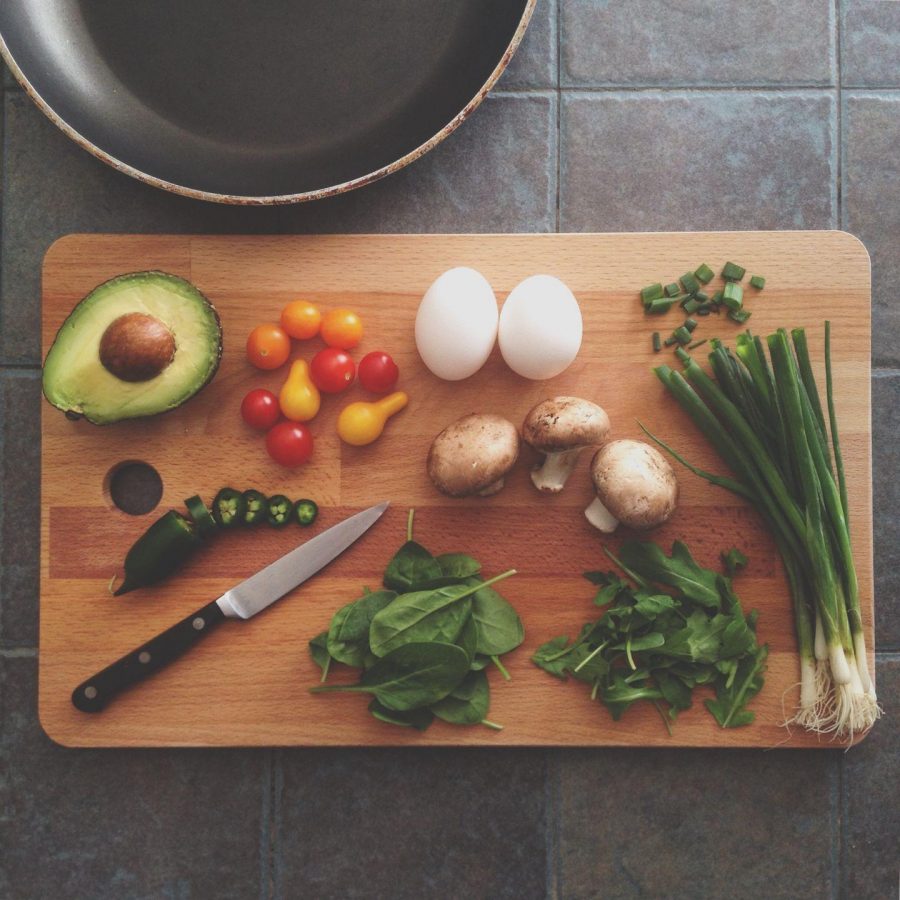Johnson: Social value of cooking must be recognized
November 12, 2019
Preparing meals for yourself and your loved ones is much more than merely providing for them. It is also an important altruistic practice that nurtures us on a sociological level.
The common custom of celebrating a holiday or special occasion is usually accommodated with the careful preparation of a meal. Food and sustenance are basic human needs that we all have in common, so it makes sense that cooking is more than just a normalized habit in our everyday lives. Producing meals also serves as one of the foundations for basic socialization.
Social sciences are inevitably tied to the ways in which we, as a species, have developed the ritualistic practice of cooking food. It has always been a social practice that involves the act of sharing and communal bonding.
Kathleen Stanley, a senior instructor of sociology at Oregon State University, has observed how humanity has consistently evolved with the practice of preparing meals as both a social and symbolic act.
“Human beings are the only species that actually cook,” Stanley said. “It’s a social opportunity for people to come together.”
Transforming our food using heat has been a ubiquitous human skill since the time Homo erectus were roaming the planet over 1 million years ago, according to New Scientist.
“Food is something very symbolic to us, which sets us apart from other species,” Stanley said. “We use food in a lot of ways that other species don’t like having different rituals, the sharing of food and handing down special recipes.”
The profound meaning behind the simple act of assembling a meal is something that we tend to overlook in our everyday lives. It’s a culturally universal act that holds both physical and emotional significance.
Food is a vital part of any culture, as it is so central to both family and public life.
Momoe Takamatsu, a graduate student at OSU, has a distinct memory growing up of how she was able to prepare a meal for her grandmother.
“Growing up, my grandmother would frequently cook for all of us, spending all day in the kitchen. To be able to cook for her and see how happy she was to be eating a meal that I cooked was very special,” Takamatsu said.
Takamatsu also recalls sharing rare time alone with her father to bond on the weekends by preparing meals together.
“To have fun, add crazy ingredients and decorate our food in a way that simply looked exciting allowed us to become closer as a family,” Takamatsu said. “It was a really nice way to incorporate bonding time because my dad usually worked all day.”
Throughout human history, cooking has evolved into an art form and serves as a marker for uncovering social and cultural differences across the globe. Popular television shows such as “Chef’s Table” and “Top Chef” elaborate on some of the careful methodologies that goes into artful cooking, and many at-home cooks draw inspiration from them.
This ties back into how food is symbolic to us. The intricate methods we use to adorn food to make it presentable for the consumer is a sign in itself that suggests its profound social and cultural significance.
According to Psychology Today, communication with others is enhanced by symbolic interaction, and that is precisely how the symbolization of food works as a part of human culture. If we consider the term “comfort food,” for example, these kinds of foods are typically associated with feelings of nostalgia.
For Sarah Booth, a culinary instructor at Linn-Benton Community College, cooking is a way of expressing our connection to the environment, and provides an opportunity to show love and
appreciation for others.
“Food bonds us to the earth, that provides it, and to each other as we work together to provide this means of sustenance and
survival,” Booth said.
Feelings of unity and togetherness inevitably arise when we find ourselves sitting down as a group, bonding over a feast of carefully prepared plates of food on
specifically chosen dinnerware.
“As a species and societies, we naturally turn it into a ritual as a way to celebrate our existence, to honor the plants and animals that we rely on for sustenance and to honor the practices in our cultures and societies that help provide for us,” Booth said.

















































































![Newspaper clipping from February 25, 1970 in the Daily Barometer showing an article written by Bob Allen, past Barometer Editor. This article was written to spotlight both the student body’s lack of participation with student government at the time in conjunction with their class representatives response. [It’s important to note ASOSU was not structured identically to today’s standards, likely having a president on behalf of each class work together as one entity as opposed to one president representing all classes.]](https://dailybaro.orangemedianetwork.com/wp-content/uploads/2025/03/Screenshot-2025-03-12-1.00.42-PM-e1741811160853.png)























